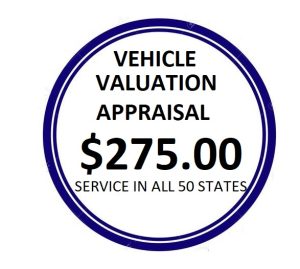Whether you drive a car, motorcycle, heavy truck in Pennsylvania, accidents happen which is why you carry insurance. But unless your vehicle is covered by an Agreed Value policy, the amount you’ll be paid if your car is deemed a total loss is entirely up to the insurance company. How does an insurer determine the value of your vehicle?
Typically, most large insurers use outside vendors such as CCC, Carfax, Autosource or Mitchell which allows them to input your automobile’s information such as year, make, model, mileage, engine, options, etc. There is also a section that enables the insurance appraiser to make additions or subtractions for mileage, optional equipment, old damage and conditioning issues. Then the primary factor in the valuation is the use of comparable vehicle sales or auction results to determine how much your car is worth. Unfortunately, an insurance appraiser can be selective in which comparables he or she uses. Many times, we’ll find that the examples don’t quite measure up to your auto.

Some interpretations include choosing vehicles with much higher miles and making costly mileage adjustments. This practice can lead to skewed results that don’t accurately describe what your low-mileage car would have sold for prior to the wreck. Another common practice is to limit the geographical search area, thereby reducing the number of comparable vehicles. An additional problem occurs when the insurance appraiser uses dissimilar vehicles to yours. Yet another common drawback is the insurance appraiser’s failure to recognize specialty vehicles, such as diesel pickups, that hold their value better than others.

What recourse does a Pennsylvania car owner have when faced with this situation? You could simply accept the lower settlement figure. Another option is to hire an independent appraiser to prepare a fair and objective valuation appraisal that accurately reflects your car’s true pre-accident value. This can be tricky so it is best to do your due diligence and research the company before hiring. Do they have poor reviews in online sites such as BBB, Angie’s List, Ripoff Report, Pissed Consumer, etc.? Also, does the appraisal firm work for insurance companies in addition to private parties? These conflicts can cost you more than just a few dollars since insurance clients may represent the majority of their business. It isn’t unusual for an independent appraiser to target the adverse insurer as a potential client.
Most states recognize the “Appraisal Clause” whereby the appraisers from both sides try to negotiate a fair settlement. A typical compromise is the median of the values arrived at by the respective appraisers. Other times, however, when no agreement can be reached, the appraisers both offer candidates to act as an umpire. This entails an additional cost which is borne by both you and the insurance company. In the event that neither side agrees on a suitable umpire, one will be chosen by a magistrate in your county. The decision of the umpire is non-binding, however, and you can still choose to litigate.
The business model of all insurance companies is to charge as much as they can in premiums and to pay out as little as possible in claims. Keep this in mind when you receive the settlement offer for your total loss vehicle.
Additional fees you may incur are $275.00 for our representation in Appraisal Clause negotiations, and half of an umpire’s fee if either are necessary. On average, approximately 10% of Appraisal Clause cases go to an umpire.
Please email the insurance company CCC or other work sheet to contact@stlucieappraisal.net
Service in Philadelphia, Pittsburgh, Allentown, Erie, Reading, Upper Darby Township, Scranton, Bethlehem, Bensalem, Lancaster, Lower Merion, Abington Township, Bristol, Millcreek, Harrisburg, Altoona, York, Stroudsburg, Wilkes-Barre and throughout Pennsylvania
Adams, Allegheny, Armstrong, Beaver, Bedford, Berks, Blair, Bradford, Bucks, Butler, Cambria, Cameron, Carbon, Centre, Chester, Clarion, Clearfield, Clinton, Columbia, Crawford, Cumberland, Dauphin, Delaware, Elk, Erie, Fayette, Forest, Franklin, Fulton, Greene, Huntingdon, Indiana, Jefferson, Juniata, Lackawanna, Lancaster, Lawrence, Lebanon, Lehigh, Luzerne, Lycoming, McKean, Mercer, Mifflin, Monroe, Montgomery, Montour, Northampton, Northumberland, Perry, Philadelphia, Pike, Potter, Schuylkill, Snyder, Somerset, Sullivan, Susquehanna, Tioga, Union, Venango, Warren, Washington, Wayne, Westmoreland, Wyoming and York Counties